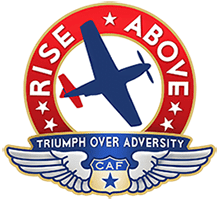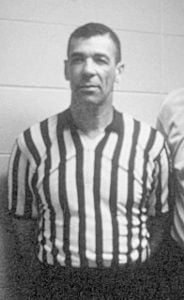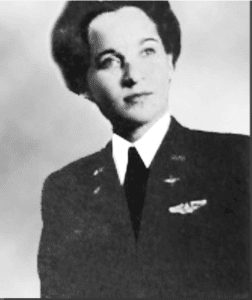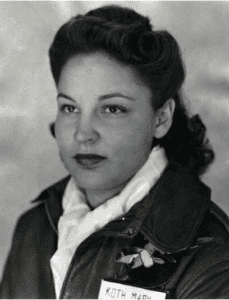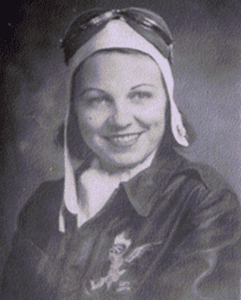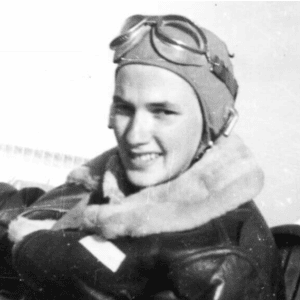A Tuskegee Airman who broke the referee color barrier
April 14, 1921 – September 16, 1995
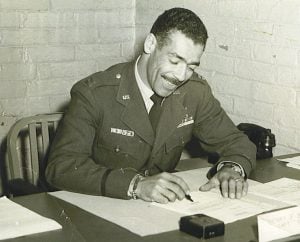 Born in Des Moines, Iowa, Hank moved with his parents to Minneapolis, Minnesota when he was just a youngster.
Born in Des Moines, Iowa, Hank moved with his parents to Minneapolis, Minnesota when he was just a youngster.
Mr. Bowman’s 21-year military career began in the spring of 1941, when family friends working as sleeping-car porters helped him “hitchhike” by train from Minneapolis-St. Paul, where he was attending Macalester College on a football scholarship, to Champaign, Ill., to fulfill his longtime yearning to fly. He enlisted in the Army Air Corps and was assigned to the segregated military complex in Tuskegee, AL.
Bowman was an enlisted member of the Pre-WWII 99th Fighter Squadron at Chanute Field, IL. Once the 99th FG was established at Tuskegee Army Air Field he was a gunnery instructor. He later went to Officer Candidate School and graduated as a 2nd Lt. Upon his return to Tuskegee Army Air Field he was assigned to the 100th Fighter Squadron as a gunnery officer in Armaments. He went overseas with the 332nd Fighter Group, 100th Fighter Squadron and was stationed at Capodichino, Ramitelli, and Catollica Air Bases.
His son, Jon Bowman, said his father had picked up the nickname Jesse – as in Jesse James – in Italy for his role in an episode the Tuskegee Airmen called “The Great Train Robbery”. The foray was of the type known in the military as a midnight requisition. Resentful that wing tanks, used to increase the range of fighter planes by holding extra fuel, were going to units of white airmen, the Tuskegee airmen decided to take matters into their own hands. Mr. Bowman and a comrade led a convoy of trucks and jeeps to hold up a supply train at gunpoint. With the Great Train Robbery, the shortage of tanks in their unit ended.
His career as a sports official began in San Antonio in the late 1950’s, when he yelled at a referee at one of his son’s ball games and the official said, “Hey, if you think you can do better, come to one of our meetings.”
While still in the service, Mr. Bowman was soon officiating at the local level. Then he began refereeing football games for the black colleges in the Southwestern Athletic Conference.
His career as a sports official began in San Antonio in the late 1950’s, when he yelled at a referee at one of his son’s ball games and the official said, “Hey, if you think you can do better, come to one of our meetings.”
While still in the service, Mr. Bowman was soon officiating at the local level. Then he began refereeing football games for the black colleges in the Southwestern Athletic Conference.
When Mr. Bowman moved to Illinois in the early 1960’s, he broke the color barrier for officials in the Big Ten Conference. Even though his playing days were over, he continued to participate as a referee—first with the Black High School & College Officials in San Antonio, Texas, and later with the National Basketball Wheelchair Association, the Big Ten league, and finally with the World Football League. He accompanied the U.S. Wheel Chair Olympic team to the XVII Olympic Games held in Rome in 1960.
During that period, his work with the short-lived World Football League led to roles as a referee in the motion pictures, “Two Minute Warning” (1976) “North Dallas Forty” (1979) and “Semi-Tough” (1977).
Hank was inducted into both the Illinois Basketball Hall of Fame for his work as an official and into the National Basketball Hall of Fame.
After retiring from the Air Force, Mr. Bowman worked in personnel for eight years for the University of Illinois and then went to work for Hilton, moving with the corporation to Los Angeles in 1974 and retiring in 1988 as a director in the human resources division after devoting eighteen years to the Hilton Corporation.
In the late 1980’s, Mr. Bowman served two one-year terms as the president of the Tuskegee Airmen, an association founded in 1972. Hank’s leadership set the organization on its course as an on-going scholarship/fund-raising campaign. The association raised raising hundreds of thousands of dollars for talented youth intending careers in aerospace, aeronautics, and science.
Hank was a fascinating man. He was well-traveled, admired for his personal accomplishments, and respected for his character.
Sources:
The CAF Red Tail Squadron is a volunteer-driven organization dedicated to educating audiences across the country about the history and legacy of the Tuskegee Airmen, America’s first black military pilots and their support personnel.
